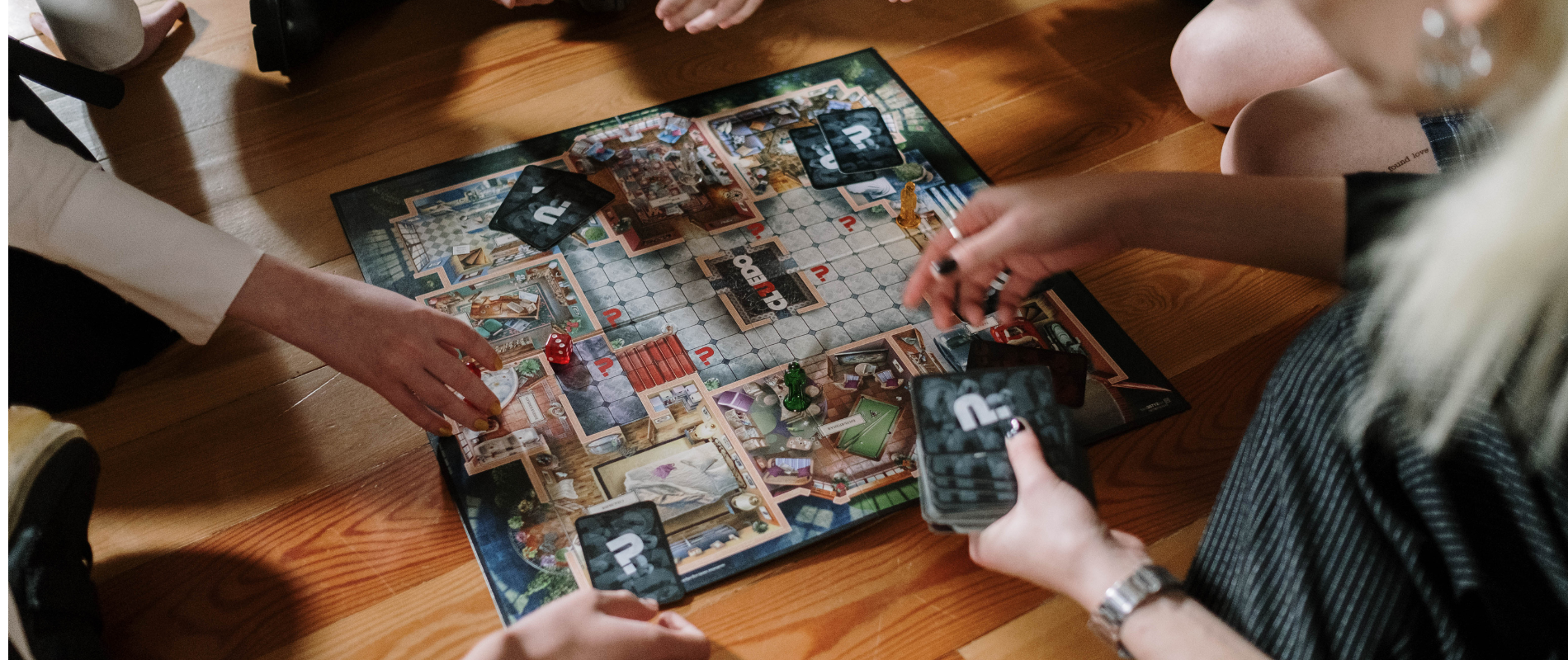Gambling under the age of 18 is a legal boundary set by many jurisdictions around the world, but what are the consequences for those who dare to cross this line? The implications of underage gambling can range from legal repercussions to long-term effects on personal and family life. In this article, we delve into the potential outcomes that young individuals face when caught in the act. Discover the risks, the penalties, and the impact on future opportunities in our comprehensive exploration.
Legal Consequences for Minors
When minors are caught gambling, the repercussions can be significant and multifaceted, impacting not just their immediate legal standing but potentially their future as well. In many jurisdictions, gambling under the age of 18 is illegal and can result in various penalties. These can include fines, which are often imposed on both the minor and their parents or guardians. In more severe cases, or if the minor is closer to the age of majority, community service or participation in gambling addiction treatment programs may be mandated.
Another critical aspect to consider is the permanent record. While not all cases will lead to a criminal record, the existence of any legal action can affect future opportunities, such as college admissions or employment. In some cases, minors may also be banned from entering gaming facilities in the future, which can extend to online gambling platforms. The social and psychological implications, including the stigma associated with legal issues, can also have profound effects on a young person’s development and self-esteem.
Furthermore, educational initiatives aimed at preventing underage gambling are becoming increasingly common, highlighting the importance of awareness and early intervention. Legal actions, therefore, serve not only as punitive measures but also as deterrents and educational tools to underscore the risks associated with gambling at a young age.
Further Implications of Legal Actions on Minors
In delving deeper into the consequences faced by minors caught gambling, it’s evident that these legal actions serve a dual purpose. They are not merely punitive but are also designed to educate and deter. By understanding the full scope of repercussions, from the immediate legal consequences to the potential for long-term impact on life opportunities, minors and their guardians can better appreciate the seriousness of gambling laws. This awareness is crucial in fostering responsible behaviors and preventing future infractions.
- Immediate legal fines and penalties for the minor and potentially their guardians.
- Mandatory participation in educational programs or gambling addiction treatment.
- Potential for a permanent record impacting future educational and employment opportunities.
- Exclusion from gambling establishments and online platforms.
- The social and psychological impact, including potential stigma and effects on self-esteem.
The Immediate Aftermath of Underage Gambling
When an individual under the age of 18 is caught gambling, the immediate repercussions can vary significantly based on the jurisdiction, the severity of the offense, and the circumstances under which the gambling activity was conducted. Generally, the legal system aims to dissuade minors from engaging in gambling activities due to the inherent risks and potential for developing addictive behaviors. Consequently, the consequences are designed not just to punish but also to educate and rehabilitate the offender.
In many jurisdictions, being caught gambling under the age of 18 can lead to a variety of penalties. These might include fines, which are often imposed on the minor or sometimes their parents or guardians. Community service is another common consequence, aimed at offering the minor a chance to give back to the community and reflect on their actions. In more severe cases, or in instances of repeated offenses, mandatory participation in gambling addiction education programs can be ordered. Such programs are designed to inform the minor about the dangers of gambling and provide them with tools to resist the urge to gamble. It’s worth noting that the legal consequences are typically more severe if the underage individual is caught gambling in a licensed venue, as this also implicates the establishment in violating gambling regulations.
Beyond the immediate legal repercussions, there are long-term implications to consider. A record of gambling offenses can impact future opportunities, such as college admissions or employment. This is because such a record might reflect poorly on the individual’s judgment and character, traits that are highly valued in educational and professional settings. Therefore, the impact of being caught gambling under 18 extends far beyond the initial legal consequences, potentially affecting an individual’s life trajectory in significant ways.
Understanding the Legal Framework Surrounding Underage Gambling
The legal framework surrounding underage gambling is complex and varies widely from one jurisdiction to another. At its core, however, lies a universal intention to protect minors from the potentially harmful effects of gambling. This includes not only the risk of developing addictive behaviors but also the possibility of experiencing significant financial loss at a young age. The laws are also in place to prevent minors from being exploited by unscrupulous individuals or establishments that might seek to take advantage of their inexperience or impulsiveness.
Despite these protective measures, the advent of online gambling has made it increasingly difficult to enforce age restrictions. The anonymity of the internet allows minors to bypass traditional safeguards, such as presenting identification to enter a gambling establishment. Consequently, regulators are constantly seeking new technologies and methods to verify the age of online gamblers and ensure that minors are kept away from online gambling platforms.
- Immediate legal penalties (fines, community service)
- Participation in educational programs about gambling addiction
- Impact on future opportunities (education, employment)
- The role of guardians in preventing underage gambling
- Challenges in regulating online gambling and enforcing age restrictions
Parental or Guardian Involvement
The involvement of a parent or guardian is a crucial aspect of managing the situation when a minor is caught gambling. It’s not just about facing the legal consequences; it’s about understanding the emotional and psychological impact on the minor. Parents or guardians are usually the first to be contacted by authorities or the establishment where the underage gambling was detected. This initial step is critical as it sets the tone for how the situation will be addressed and resolved.
In many jurisdictions, the legal system emphasizes rehabilitation and education rather than punishment for underage gamblers. This approach often involves mandatory counseling sessions, both for the minor and their parents or guardians, to better understand the risks associated with gambling. In some cases, parents might also be held accountable for their child’s actions, especially if they were found to have facilitated access to gambling activities. This could lead to fines or other penalties, reinforcing the importance of parental responsibility in monitoring and guiding their children’s activities.
Moreover, this situation opens a dialogue between the child and their parent or guardian about the dangers of gambling. It provides a platform for discussing the reasons behind the behavior and strategies for making better choices in the future. Engaging in open and honest conversations is key to preventing further incidents and ensuring that the minor learns from their mistake.
| Aspect | Responsibility | Outcome |
|---|---|---|
| Notification | Authorities/Establishment | Inform parents/guardians |
| Counseling | Parents and Minor | Understanding and Rehabilitation |
| Legal Accountability | Parents/Guardians | Possible Fines or Penalties |
| Education | Parents and Minor | Awareness of Gambling Risks |
| Prevention | Parents/Guardians | Monitoring and Guidance |
Addressing underage gambling requires a comprehensive approach that involves not just the minor, but also their parents or guardians. When a young person is caught gambling, it opens up a critical opportunity for intervention and education. By involving the family in the resolution process and emphasizing the importance of open dialogue, there is a greater chance of preventing future incidents. It’s a reminder that gambling is not a risk-free activity and that there are significant consequences for engaging in it underage. Through collaboration between families, authorities, and organizations, a supportive environment can be created to guide minors towards understanding the value of responsible decision-making.
Impact on Future Opportunities
Engaging in gambling before reaching the legal age carries not only immediate legal consequences but also long-term impacts that can affect one’s future. When caught gambling under 18, the incident may become part of your legal record, depending on your jurisdiction and the severity of the offense. This blemish on your record can prove to be a stumbling block as you venture into adulthood, especially in areas concerning education and career development.
Colleges and universities often conduct background checks as part of their admissions process. A history of legal issues, including those related to underage gambling, could jeopardize your chances of acceptance into the institution of your choice. Similarly, when applying for jobs, employers may view a gambling infraction as a mark against your character, questioning your reliability and decision-making capabilities. This is particularly true in industries that require a high level of trust and integrity, such as finance and government roles. Moreover, certain professional licenses may be harder to obtain if you have a criminal record, however minor it may seem.
It’s important to recognize that these consequences are not just immediate hurdles but can also have a profound impact on your future opportunities. Engaging in gambling activities before you are legally allowed to do so can close doors to potential educational and career paths, making it significantly harder to achieve your long-term goals. The risks associated with underage gambling, therefore, extend far beyond the immediate legal repercussions, affecting your future in unforeseen and lasting ways.
Further Considerations for Underage Gambling Offenses
- Understanding the legal implications in your specific jurisdiction.
- Seeking legal advice or counseling if you’re caught gambling underage.
- Exploring educational programs about the risks and consequences of gambling.
- Considering the impact on college applications and future employment.
- Being aware of the potential need to disclose this information in certain situations.
Educational and Social Ramifications
The consequences of underage gambling extend far beyond the immediate legal repercussions. When young individuals are caught gambling, the educational and social ramifications can be significant and long-lasting. In an educational context, students may face disciplinary actions from their schools, ranging from warnings to suspension or even expulsion in severe cases. This not only affects their academic record but can also hinder their chances of admission to colleges or universities.
On the social front, underage gamblers often experience a breakdown in trust with their parents and peers. The stigma associated with gambling can lead to social isolation, as friends and family members may distance themselves. Moreover, the stress and guilt associated with gambling activities can lead to mental health issues, such as anxiety and depression, further impacting the individual’s social life and academic performance.
Additionally, the financial strain of gambling can lead to a vicious cycle of borrowing and debt, which can strain familial relationships and diminish the gambler’s social status among peers. The long-term effects of such issues can be detrimental, affecting not just the individual’s present circumstances but also their future opportunities and overall quality of life.
| Consequence | Short-term Impact | Long-term Impact |
|---|---|---|
| Educational Penalties | Suspension from school activities | Reduced higher education opportunities |
| Social Isolation | Loss of trust and support | Long-term relationships damage |
| Mental Health Issues | Increased stress and anxiety | Persistent mental health disorders |
| Financial Strain | Immediate debt | Long-lasting financial instability |
Potential for Rehabilitation and Support
The journey towards rehabilitation and support for underage gamblers who have faced legal consequences is intricate and requires a nuanced approach. Recognizing the underlying reasons for their behavior is the first step in a meaningful rehabilitation process. It’s not merely about penalizing the youth but understanding and addressing the root causes of their gambling activities. This understanding paves the way for tailored support systems that can guide them back onto a path of responsible decision-making and healthy living.
Rehabilitation programs are designed to offer these individuals a second chance, focusing on education, personal development, and emotional support. These programs aim to instill an understanding of the risks associated with gambling, including the potential for addiction and the wide-ranging impacts it can have on one’s life and relationships. By fostering a supportive environment, these programs encourage youths to reflect on their actions and develop new coping mechanisms that do not involve gambling.
Support networks play a crucial role in the rehabilitation process. They can include family members, friends, mentors, and professionals who are trained to deal with gambling problems. These networks provide a safety net that can catch individuals if they fall, offering guidance, encouragement, and understanding. It’s important for these youths to know that they are not alone and that there are people who believe in their ability to change. Through consistent support and positive reinforcement, individuals can rebuild their self-esteem and confidence, which are often eroded by the cycle of gambling and legal troubles.
- Educational Workshops on the Dangers of Gambling
- One-on-One Counseling Sessions
- Group Therapy Sessions
- Family Therapy and Support Groups
- Mentorship Programs
In addition to these rehabilitation and support mechanisms, community involvement and outreach programs play an essential role in preventing underage gambling. By raising awareness and educating the public about the legal and personal ramifications of underage gambling, communities can create a safer environment for their youth. This proactive approach not only helps in reducing the incidence of underage gambling but also strengthens community ties, making it easier for individuals seeking help to find the support they need.
To conclude, navigating the aftermath of getting caught gambling under 18 requires a comprehensive approach that goes beyond mere punishment. It demands an understanding of the individual’s circumstances and a commitment to their long-term well-being. Rehabilitation and support are key to not just addressing the immediate legal consequences but also ensuring that the young individual has the tools and resources to make better choices in the future. The journey is undoubtedly challenging, but with the right support and guidance, it is possible to turn a moment of adversity into a stepping stone for personal growth and development.
Laura Johnson is a seasoned board game strategist with a knack for blending game theory and betting insights. With over a decade of experience in the gaming community, Laura excels in analyzing game mechanics and predicting outcomes, both on the board and in betting scenarios. Her expertise extends to helping players enhance their strategies, whether they’re competing in a game night or placing bets on game-related outcomes. Laura’s unique approach makes her a valuable resource for those looking to elevate their gaming and betting experiences.







